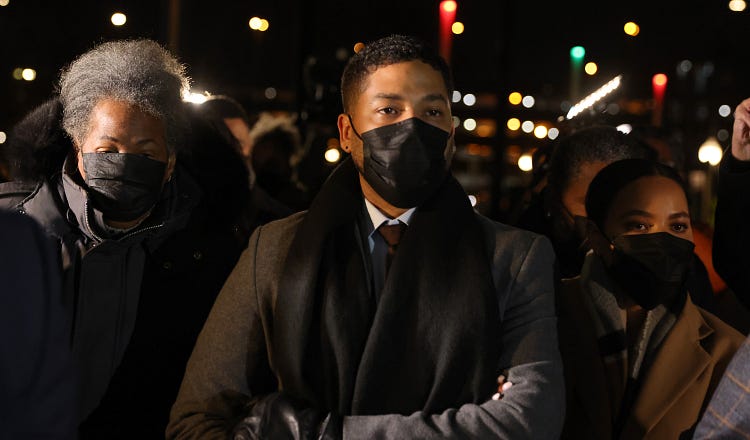TGIF: Abortion, Guns, and Other Polite Topics of Conversation

Former "Empire" actor Jussie Smollett arrives at the Leighton Criminal Courts Building to hear the verdict in his trial on December 9, 2021, in Chicago. Smollett was found guilty of five of the six counts against him. (Scott Olson/Getty Images)
Plus: Jussie Smollett's self-administered hate crime. And that time I met Elizabeth Holmes.
230
Welcome back to the Friday news roundup with Common Sense. We have all the news we’re watching this week—and there has been a lot. We’re especially riveted by the trial of Jussie Smollett (why did he do it?) and the ongoing case of Elizabeth Holmes. Read on for the time I rubbed elbows with the Blood Queen.
→ The Black Lives Matter national organization
Continue Reading The Free Press
To support our journalism, and unlock all of our investigative stories and provocative commentary about the world as it actually is, subscribe below.
$8.33/month
Billed as $100 yearly
$10/month
Billed as $10 monthly
Already have an account?
Sign In


